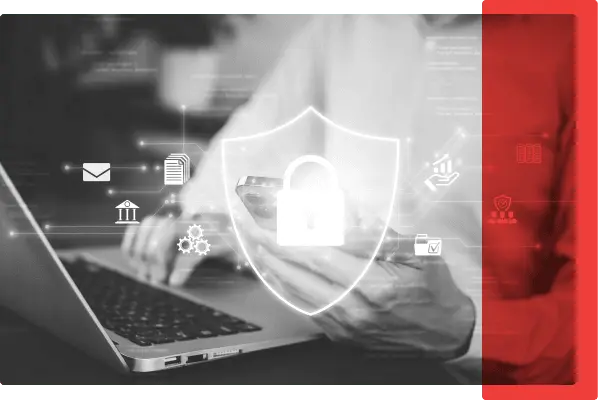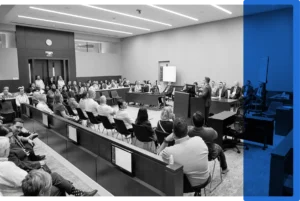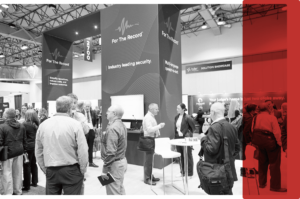
29 Oct
2025
CJIS, SOC 2 Type 2, and NIST 800-53 Rev. 5: What’s the Difference—And Why We’re Compliant with All Three
When it comes to safeguarding sensitive justice-related data, not all security standards are created equal. That’s why For The Record’s cloud-based platform, FTR Justice Cloud, meets and exceeds multiple compliance frameworks—including CJIS, SOC 2 Type 2, and the rigorous NIST 800-53 Rev. 5.
Each of these frameworks serves a different—but complementary—purpose in the security ecosystem. Here’s how they compare:
Security Standards Overview
- CJIS: Law enforcement-level protection; practical, rule-based, and tailored for local/state agencies handling criminal justice information
- SOC 2 Type 2: Business-focused framework that proves operational and data security over time through independent audits
- NIST 800-53 Rev. 5: Government-grade, mission-critical standard with hundreds of controls spanning technical, physical, and human systems—designed for high-security, high-risk environments
CJIS Policy: Security for Criminal Justice Data
The Criminal Justice Information Services (CJIS) Security Policy, developed by the FBI, sets the standard for protecting criminal justice information (CJI)—including fingerprints, case files, arrest records, and court data. Compliance is non-negotiable for vendors working with law enforcement or justice entities.
CJIS compliance covers 13 policy areas and includes requirements like:
- Encrypted data transmission and storage
- Two-factor authentication and advanced user access controls
- Detailed audit logs and system usage tracking
- Signed security addendums with agencies and mandatory personnel background checks
For The Record’s CJIS-compliant systems ensure that we meet these mandates in full—giving law enforcement and justice customers the assurance that their data is managed with FBI-level rigor.
SOC 2 Type 2: Trust in Cloud-Based Services
SOC 2 Type 2, developed by the AICPA (American Institute of Certified Public Accountants), is a widely respected framework for evaluating how organizations manage data based on Trust Services Criteria: security, availability, processing integrity, confidentiality, and privacy.
Unlike SOC 2 Type1, which is a point-in-time snapshot, SOC 2 Type 2 evaluates an organization’s controls over time. This long-term review is designed to validate that we consistently implement and maintain secure practices—not just once, but continually.
SOC 2 Type 2 is especially relevant for cloud service providers because it verifies that they can securely handle sensitive customer data in hosted environments, where risks such as unauthorized access, downtime, and data loss are heightened. For The Record’s successful SOC 2 Type 2 audits demonstrate that our platform operates with ongoing, verifiable discipline—keeping customer data protected and systems reliable over time.
NIST 800-53 Rev.5: Built for Federal Systems—And for What’s Next
The National Institute of Standards and Technology (NIST) Special Publication 800-53, Rev. 5 was originally designed for federal agencies—but it’s being increasingly adopted by high-security enterprises and justice-related systems seeking to raise their cybersecurity posture to national standards.
Why? Because NIST 800-53 Rev. 5 is built for mission-critical operations and addresses the entire threat landscape: external attacks, insider threats, supply chain compromise, and operational resilience.
Some key attributes:
- Over 1,200 controls across access, monitoring, encryption, logging, incident response, personnel security, and physical safeguards
- Highly customizable based on system impact level (low, moderate, hiigh)
- Demands continuous risk management, zero trust architecture, and supply chain risk analysis
- Requires engineering rigor, automation, technical documentation, and policy maturity
The NIST SP 800-53 Rev. 5framework sets the mandatory security standards for federal systems, organizing controls around the core pillars of confidentiality, integrity, and availability. FedRAMP, the federal government’s cloud program, provides a standardized approach to security assessment, authorization, and continuous monitoring for cloud products and services. It is directly tied to NIST 800-53r5, as FedRAMP standardizes the security assessment process for cloud service providers by requiring them to follow the NIST-defined security controls and enhancements.
By fully adopting NIST 800-53 Rev. 5, For The Record is already aligned with the same standards that underpin FedRAMP—positioning us on a clear pathway toward that certification and reinforcing our commitment to delivering cloud solutions that meet the highest levels of security and trust. Whether handling court recordings or transcript data, our systems are built for environments where security isn’t optional—it’s essential.
Why It Matters
Being compliant with CJIS, SOC 2 Type 2, and NIST 800-53r5 shows that our technology is built for environments where security isn’t optional—it’s essential.
From the courtroom to the cloud, For The Record delivers solutions that meet the highest expectations for justice, transparency, and trust. We’re not just checking boxes—we’re setting the standard.



